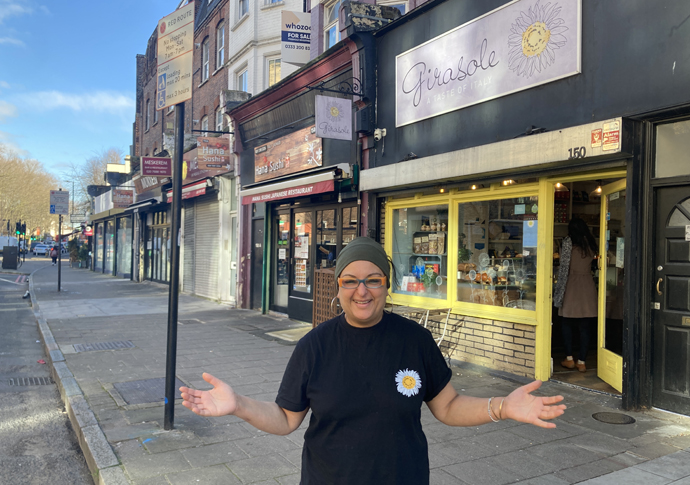Businesses fear further traffic restrictions
Friday, 17th May 2024

Eglal Gomaa says a new cycle lane was the final straw for Girasole, her popular cafe on Seven Sisters Road
• R WALFORD’S May 10 letter (A liveable neighbourhood is good for businesses) does not acknowledge the problems independent businesses and shops and larger retailers are already experiencing because of congestion on Islington’s main roads caused by LTNs, low traffic neighbourhoods.
The response to Mehmet Ozer’s worries (We need to keep Barnsbury moving, May 3) that deliveries both to and from his shop are already taking longer and will be even worse if east-west closures across Bransbury and Laycock are implemented is ignored by R Walford.
Instead, it is argued that reducing traffic is “good for businesses” and the letter writer mentions studies in Graz in Austria, San Francisco and one road in London to support this argument.
How relevant are these studies to businesses and shops on Caledonian and Holloway roads, Upper Street, Penton Road and Chapel Market and other local retailers, I wonder?
And interestingly, in the same edition of the Tribune, a café owner stated that a cycle lane was responsible for cutting business by 50 per cent and partly responsible for the closure of her shop, (End of the road for cafe as owner says cycle lane cut business’s sales in half).
We have recently carried out a survey of over 100 shops in Caledonian Road and over 97 per cent were against any further road restrictions in Barnsbury and Laycock.
Longer delivery times to and from shops were again mentioned as important factors together with the increased congestion and pollution on some of the adjoining main roads, which will become significantly worse if there are further traffic restrictions.
Similar concerns are raised by shops and stalls in Chapel Market and independent businesses on Upper Street.
A recent independent survey by the business community representing a large number of retailers, both small and large, in the Upper Street and Chapel Market area arrived at the same conclusion, namely that it is extremely important for the viability of all businesses that the north-south east-west axes across Barnsbury and Laycock remain unfiltered and open.
The survey pointed out that the filters, as proposed, would cause considerably longer journeys and diversions onto main roads causing further congestion and pollution. And that this is hardly green!
London is a working city with over nine million people; it is a vibrant capital which relies on an effective road network to service the needs of residents, retailers, and all of those who rely on vehicles to make a living.
It is time to reconsider the proposals put forward for Barnsbury and Laycock and have a pan-London approach to traffic management for this very complex issue.
GILLIAN COLLIN, N1